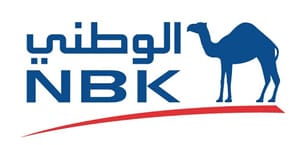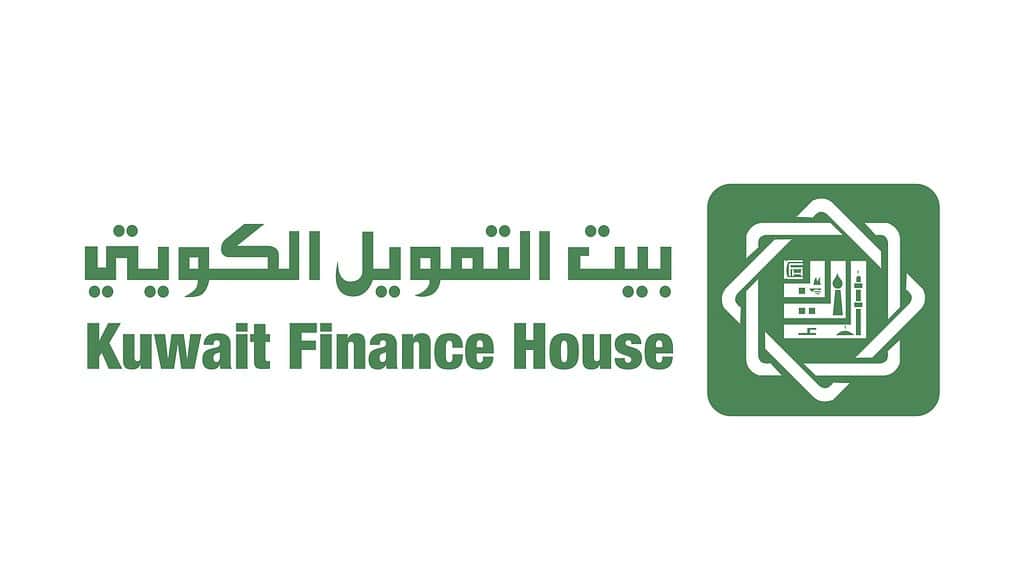Kuwaiti banks provided crucial support through the Covid crisis and will play just as an important role in nursing the nation back to full economic health. Top executives from Kuwaits financial sector discuss the past year in helping clients and supporting the economy in looking ahead to the future post pandemic.
Global Finance: A year after the pandemic, Kuwait is still experiencing partial lockdowns, travel bans and mandatory institutional quarantining. Vaccines are becoming available but have not yet reached a large percentage of the population. How has the pandemic impacted Kuwait’s economy and banks? When do you anticipate recovery to take place in earnest? Which sectors of the economy will be permanently advantaged or damaged?
MOHAMMAD AL-HASHEL: Undoubtedly, 2020 was exceptional by all means. We expect a contraction of GDP in both oil and non-oil sectors. The third quarter shows there will be a year-on-year decline of around 11.5% in GDP, which is slightly better than the second-quarter contraction of 13.4% year-on-year.
We also faced challenges on the fiscal front due to the sharp drop in energy production and prices. Given Kuwait’s heavy reliance on oil revenue, the budget was impacted negatively.
The banking sector, fortunately, was resilient and sound enough to absorb the shock. I think our efforts over the past decade have paid off, and banks—Kuwaiti lenders particularly—entered this crisis from a position of strength. The sector’s key financials for the past year show very healthy capital adequacy, strong asset quality and good profitability, even though the business and operational environments suffered from the full and partial lockdowns.
Even though we’re not out of the woods yet, the Kuwaiti banking sector remains sound and continues to perform its vital role in the economy. We expect banks to hopefully overcome this crisis very soon.
ADEL AL-MAJED: The banks thought they were prepared, but we never, I think, looked at this scenario of being shut out from our staff and premises. Logistically, it was a real shock during the first few days, and we were not prepared for it. I think I speak for all the banks here.
Getting our staff to work from home was a very big challenge. We met a lot of resistance. Employees who were involved in branch operations, letters of credit and back office rose to the occasion, but part of the staff was just scared of coming to work in a pandemic context. Another thing we never thought about before was the availability of laptops in Kuwait. Most banks needed portable computers for their staff, especially call-center employees, to work from home and we faced a shortage. Actually, most of the banks tried to procure laptops from the retail market, from a shop here and a shop there.
More generally, we thought we were quite advanced when it came to digital banking, but we mainly looked at it from a retail point of view when in fact we were not ready on the corporate side, especially when it involved moving cash.
A year down the road, I think banks are slowly coming back to normal. Operations-wise, we are settled, and I think we have learned a lot over the past few months. The one good thing we are walking away with as banks is that we are now well prepared if such a scenario should repeat itself in the future. Of course, I hope it doesn’t. But we would be ready.
That being said, I also agree with the governor when he says that we are not out of the woods yet. We still have some issues to tackle. There is an ongoing debate, for instance, about the efficiency of staff management. We are now operating with 50% of employees actually coming to the office; in some cases, it’s only 30%. So, this raises the question of whether, before the pandemic, banks were efficiently managing human resources or if we were simply operating with excess staff.
ALI KHALIL: From our point of view, the lockdown and other measures taken were prioritizing safety—and that should be so—but it has also resulted in a loss of productivity with serious business and economic implications. The Kuwaiti society has turned inwards and adapted to more local offerings mainly for leisure, hospitality, education, and healthcare.
The impact of Covid-19 has been substantial, but I would say that overall it turned out much better than what we expected at Markaz. Earnings of listed companies were down approximately 60% year-on-year in 2020 versus 2019, and banks were down by 50%. The biggest losing sectors were real estate, due to collection and some pressure on the expatriate population, and financial services. Telecoms fared reasonably well.
I would like to stress here that Kuwait’s stimulus package was lower than many other countries in the region, standing up at about 1.2% of GDP compared to 6.3% in Saudi Arabia. This was very good for the government managing it, but it was not as positive for private businesses. We saw that developed markets were very aggressive on stimulus—in the United States for example it stands at 25% of GDP today, while emerging market took the opportunity to embrace a set of reforms. In Kuwait, I feel that we were kind of slow on the reforms.
But I would like to add one more element here: Unlike in 2008, this time Kuwaiti banks played a very supportive role by continuing to provide liquidities to most sector and this has been a great positive.
So just to sum it up, we feel that there is a positive tailwind on the recovery for banks, retail with online shopping, Kuwait-centric hospitality and leisure, education, healthcare and technology, but headwinds for both commercial and residential real estate, general contracting, as well as outbound hospitality and business hotels.
JEHAD AL-HUMAIDHI: In addition to what my colleagues said, I think there are really two aspects to consider here, which are interrelated. There is the banking sector itself, and the businesses.
As far as the banking sector is concerned, even though 2020 profitability was below what was achieved the years before, I think it showed very good resilience. This is thanks to a lot of measures that have been taken not only last year but also previously, notably to build up reserves and provisions. So, we can say that banks are very strong, but so is the business sector. Some companies suffered greatly, of course—in the hospitality sector, for example—but others, such as online shopping services and fintechs, have actually excelled because of the pandemic.
Another important thing already mentioned by Adel Majed was about staff working from home. That was completely new. All banks had been prepared for business continuity, but this was not a scenario we worked on before, and at the beginning it was a big challenge. However, we got through it, and we managed to serve our customers during the full lockdown, and subsequently, even when we were partially working.
I disagree with Adel Majed on the idea that 50% of the staff might have turned out to be in excess. Today, when we have 50% working at the office and the other 50% working from home, they really complement each other. And we found out that working from home is actually as efficient as working from the office, except for a few functions around the bank that require physical presence. But otherwise even our call center was able to work from home.
So, it is a new experience in Kuwait, like elsewhere in the world. But we learned along the way, and I think that we are now ready—hopefully not for another round, but we are able, even now with this partial lockdown and the reduction of the staff presence at the office, to serve our customers 100%.
GF: During the pandemic, digital banking reached new watersheds as people were forced to conduct personal and professional banking activities from phones, tablets and computers. What has been the experience in Kuwait? How have banks performed, and what are the challenges facing Kuwaiti digital banking?
GEORGE RICHANI: To answer this question, you have to really understand a few things. Before the pandemic started, Kuwait had high uptake potential for digitization. One reason for that is the country’s demographics: 62% of the population in Kuwait is below the age of 30. Another is internet penetration: 97%; it’s one of the highest in the world. There is also social media: 55% of people in Kuwait are very active on social media. Those are very important factors that encourage digitization. Regulation also helps. In 2018, the CBK issued new instructions for electronic payments. Many factors came into play before Covid-19.
During the pandemic, Kuwait saw a very significant uptake in mobile and internet banking, especially for day-to-day transactions. We have seen adoption rates increase almost fivefold. For example, at Al Ahli Bank of Kuwait, we saw a 73% year-over-year increase in online domestic transactions in 2020. We also recorded a 30% increase in new mobile banking and a 35% increase in online transfers. We’ve seen 800% growth—from a low base, yes, but growth still—in ABK Pay services, which offers customers the ability to request payments using WhatsApp and SMS.
Kuwait was ready before Covid-19 with the Central Bank paving the way. I think the digitization levels achieved during the pandemic will stay with us and might even increase.
GF: Governor, how is the central bank thinking about digitization?
AL-HASHEL: I think this is a very important and critical topic. On the one hand, you want advanced quality, convenient and fast services; but on the other hand, you also want safe and secure services. We encourage our banking community and financial sector to combine safety, convenience and high quality.
But I think we should take our efforts to a new level. Previously, technology was a major support function. This is no longer the case; it became the heart of everything. And I think we can move our products and services to a new digital level, where it is much more than automation of services or electronic payments.
The financial sector, fintechs, digital companies and SMEs [small and midsize enterprises] have the capacity to contribute to society. The central bank encourages banks to support and collaborate with innovative companies. We also offer a supportive environment with our regulatory sandbox, where innovators can test products and services to make sure they are top quality and safe at the same time. Further investment is required in this area, from us at the regulator’s level, from the bank and also from the private sector.
ADBULWAHAB AL-RUSHOOD: Our strategy at Kuwait Finance House (KFH) was to manage the crisis by using digital tools to facilitate customer service and internal operations. I can say that the pandemic was a real test to our digital transformation strategy. During the crisis, we maintained our performance and provided high-quality mobile banking services without interruption, while safeguarding the health and safety of both customers and employees.
In 2020, the number of transactions completed by customers online or through our mobile application hit 140 million, which is the equivalent of 18% growth if compared to the prior year.
With the support of the central bank providing the framework and approvals, KFH launched digital onboarding services, allowing customers to open bank accounts online in just a few minutes, also without ever visiting any branches. In terms of investments in innovation, I’d like to mention that we are investing in two fintech funds, one in the Silicon Valley and the second here in the Middle East.
RICHANI: There are challenges, of course. Internally, banks should really work on their talents. We see that there is a shortage in software architects, data scientists and designers. Operating models also need to be more agile.
GF: In the GCC and Kuwait, the pandemic has been a grand disruptor. Disruption often leads to consolidation within sectors, perhaps at the country and regional level. Do you see societal support for consolidation of the Kuwaiti and GCC banking sector?
AL-HASHEL: Well, I’m not sure if this is a matter of societal support or rather more of a business decision. If we want to look at it from the society’s perspective, people want to receive top-quality, fast, convenient, cheap and safe services. Consolidation can lead to that.
But if we take the business point of view, for the shareholders and the regulator it’s more of a technical question. What new institutions will consolidation bring about? What synergies will they create? With what new qualities? What will be the impact on human and IT resources? And I think that when you look at these aspects, the decision is often to support consolidation.
From the regulator’s perspective, given that we are still navigating the crisis, it is critical that we analyze deeply, weigh the pros and cons, make sure that we understand both the acquirer’s and the acquiree’s positions to decide whether, basically, the new entity can survive, better serve the community, achieve financial stability, deliver high-quality services and of course, further strengthen competition.
Bottom line: What we have in mind is the community, the society and the human being that we provide services for. If we can provide better services with a new entity, then consolidation is a good decision. If that new entity delivers poor services and disrupts financial or monetary stability, I think it’s not favorable.
ISAM AL-SAGER: Covid-19 has led to extreme instability in markets as it disrupted global business plans and reshaped many industries.
This disruption has also affected the banking sector across various geographies and its effects will continue to be felt in the future as recovery gradually takes place. The post-Covid world will offer opportunities for cross-border mergers and acquisitions as various financial institutions will face challenges to remain operational, while others will strive to become larger and more diversified to withstand regional and global competition.
Cross-border consolidation can create a lot of synergies, allowing for cross-selling in different markets, cost saving as well as transfers of knowledge, technologies and talent.
As compliance requirements increase, the cost to maintain proper compliance practices has been increasing as well, putting more pressure on smaller banks and leading to the further need to create cost synergies through consolidation.
In the GCC countries alone, it is estimated that more than 20 financial institutions with total assets exceeding $1 trillion were in merger talks in 2020. Banks in Saudi Arabia, the United Arab Emirates and Qatar are in the process of merging in order to create larger financial institutions that can better support the transformation efforts underway in their relevant economies.
I think Kuwaiti banks need to be well prepared and positioned to leverage any arising opportunities to remain competitive on the regional level, as we are starting to see bigger institutions emerging as a result of recent M&A—especially in the UAE and Saudi Arabia.
AL-RUSHOOD: If you look at the GCC, the top 10 banks in total asset size currently are the result of mergers and acquisitions. Take First Abu Dhabi (FAB) in the UAE for example, or NCB and Samba Financial Group in Saudi Arabia. When they complete their merger, they will become the third-biggest bank in the region. The way I see it, the efficiency on the rate of return and on shareholders’ equities is one of the major benefits from the consolidations among the GCC banks.
RICHANI: The most important driving force behind consolidation is basically forming bigger banks with increased economies of scale in order, for example, to carry out government megaprojects. Another driver is the possibility to increase economies of scope—so that’s across sectors—to provide a wider spectrum of products. There is also a tendency for banks to come together when they are under earnings pressure or when you have an overbanked population.
Consolidation basically creates efficiency, although the challenge of integration is real. Now, if you see it from a societal perspective, one should really strike a balance between having lots of choices and product variety for clients versus lower cost.
Going forward, I see Kuwaiti and GCC banks taking steps in two directions: acquiring or actively partnering with technology companies like fintechs and adding capabilities to the bank through new segments or product offerings, for example, trade finance with partnerships.
AL-HASHEL: Consolidation in many cases is a positive thing. but we shouldn’t ignore the challenges that come with it. It is only a good decision if we can enhance financial stability, create operational efficiency, strengthen competition, provide better services and protect customers.
And let’s remind ourselves of the recent trends regarding consolidation. Immediately after the 2008 global crisis, there was a momentum in favor of smaller, more-specialized banks rather than “too big to fail,” if you remember that notion. Smaller lenders were then seen as more agile and more practical to manage. Even for regulators and central banks, the idea was that it would be easier to protect society from the collapse of smaller banks.
Now, given the pandemic, given the need for enhanced profitability after the pressure on the business environment, given the need for digitalization and more efficiency, we have to be careful. We shouldn’t just follow the titans and the theory, but rather focus on the practical benefits for all stakeholders.
GF: Around the world, environmental, social and governance considerations have taken on new prominence during the pandemic. What has happened in Kuwait?
AL-HASHEL: Well, this is also a very important topic. Our economy is heavily reliant on oil and so is the financial sector. Now, climate change and the future of the oil industry is affecting that relationship. We are discussing this actively and preparing the banking community for the future. I think we have to be ready to face all types of risks—whether physical, transitional or financial—that might result from climate change.
Governance is also critical. The pandemic strengthened the importance of having proper governance in all institutions and the banking sector, of course, is no exception. In fact, I believe banks should lead the private sector in terms of proper governance.
Recently we introduced independent members to boards of directors. It is being done gradually and will reach up to four members in 2022. Gender equality and income equality are also very important. At the Central Bank of Kuwait, we are very proud to have more female than male employees. Currently, women represent 58% of our staff, including at managerial and executive level.
AL-SAGER: The trend has been growing significantly, especially during Covid-19 times, because companies’ embrace of ESG will lead to a faster and more sustainable recovery. Disclosure and transparency around ESG helps in building public trust and, of course, it also helps stakeholders in making better decisions.
I believe there are three main developments that outline the increasing importance of ESG practices. First, there is a growing demand for sustainable investment globally, with more investors focusing specifically on ESG. Additionally, premium valuations and pricing are being paid for companies with strong ESG programs and satisfactory reporting. Our discussions with investors regarding all our recent bond issuance, for example, reflected this. During almost every meeting, ESG strategy was a key topic.
In 2020, ESG funds captured $51 billion in net new money funds for investors worldwide, compared to $21 billion the year before. More than $30 trillion worth of sustainable assets are currently managed globally.
And we are also seeing new initiatives aiming to improve ESG transparency through standardized sustainable reporting standards from the European System of Financial Supervision [ESFS] and the International Financial Reporting Standard [IFRS] Foundation. Very soon, all rating agencies will include ESG reporting and scoring in their criteria, thereby creating a framework where ESG practices will directly impact credit rating.
While ESG is still a relatively underdeveloped concept in emerging markets, I think it should be a collaborative effort between industry leaders, regulators and government agencies. In Kuwait, we have seen significant developments taking place thanks to the CBK’s efforts to develop a framework for the banking sector. The recent appointment of independent board members in banks is a great example of this. Boursa Kuwait [Kuwait’s stock exchange] is also promoting sustainability reporting by listed companies, and there is talk of a potential plan to establish an ESG index to even further stimulate disclosure.
As much as we feel that we are on the right track, the global context and regulatory environment is changing fast, and we can do more to better prepare Kuwaiti companies for the upcoming challenges.
RICHANI: Governance and environmental issues have been the main focus over the past few years, but with the pandemic I feel that the social element will become more important. The investors and companies in the region are moving in this direction.
AL-HUMAIDHI: ESG has been a reality in the region for a few years already and it is becoming more important as time goes by, especially now with the pandemic. The banking sector, in fact, is moving toward actually rating clients based on their ESG and their environmental sustainability. It is becoming like an index used to measure different institutions and organizations.
GF: Given the importance of the oil industry to Gulf countries, are financial institutions in this region at a disadvantage relative to countries with less carbon-fuel-dependent economies when they’re being evaluated on environmental measures?
RICHANI: With GCC countries, including Kuwait, being hydrocarbon industries, it’s not easy to disconnect from oil and be very environmentally friendly. But I’m sure banks and companies will be able to tackle this issue.
AL-HASHEL: I think this represents a good opportunity actually to adapt and move to more environmentally friendly business lines, including within the oil sector. We should look at this as an opportunity rather than a threat. The oil sector is improving, notably with the banking sector providing new sources of funds to adapt and change.
And I want to also mention the “Diraya” campaign—“Be Aware,” in Arabic. This was one of CBK’s most recent initiatives, in partnership with the banking sector, to increase customers’ awareness about their responsibilities and rights, for them to make better informed decisions.
GF: It has been suggested that Kuwait needs a comprehensive development plan to diversify its economy and spur job growth. Do you agree? If so, what should such a plan include? Many believe Kuwaiti economic and demographic factors require robust private sector job growth. This will probably have to come from SMEs. How will these organizations be financed to power this growth?
AL-HASHEL: Every country in the world needs an advanced, adaptive and dynamic development plan that takes into consideration future challenges, risks and changes happening worldwide. Kuwait is no exception. In fact, we already have a very comprehensive reform plan to address the structural imbalances of our economy. It covers economic diversification, fiscal policies, the structure of the labor market and more.
As of today, we achieved monetary and financial stability, but that’s not enough. And actually, both monetary and financial stability will be impacted if we don’t take necessary, serious steps to further remedy our structural imbalances. We need a comprehensive development plan to diversify our economy away from oil and create jobs for nationals. We also have to expand capital investments in order to attract both local and foreign investors who can create a healthy and attractive business environment.
All of that must be taken into consideration if we want to enhance our fiscal position and achieve economic sustainability to ensure the prosperity of future generations—to make sure that they can at least enjoy what we had in the past.
KHALIL: This will require a holistic approach with talent building, legislation, financing and regulations all working in concert. I think that in this equation, clearly the banking sector is ahead of the other sectors.
Now, there is still a lot of room in Kuwait for SME growth that will bring disruption and diversification. However, the ecosystem can be tweaked a little bit to become more conducive for business formation. And on this I would like to say two things: George Richani mentioned demographics earlier, and I believe this is a great strength. The second thing is fiscal pressure. His Excellency said there would be more reliance on privatization, and I think the non-bank financial institutions should take the lead in that space.
The banking system in Kuwait is relatively risk-averse—and very understandably so. As long as we have assurances on deposit remaining in effect, we’re not likely to see a spur in risk-taking, because given the constraints on interest rates, it just doesn’t make sense to start taking risks. There is nothing wrong with that, it’s just the structure of the banking sector in Kuwait.
Well-capitalized financial institutions that are not banks can get into high-risk financing such as equity, quasi-equity and debt. For example, in the developed markets, private debt markets have ballooned. They charge substantially high interest rates, almost equity-like returns, and basically replaced Western banks when it comes to funding the private equity and VC sectors. This is quite important to drive diversification and growth.
For another example, non-banks can be very helpful with tougher fiscal conditions or mortgages. Once regulated, hopefully this could fuel the housing industry and take away some of the pressure from the government.
RICHANI: Definitely, SMEs are very important for spurring growth, creating employment and improving the economy overall. If you look at Kuwait today, more than 85% of registered companies are considered SMEs—with a turnover of less than 2 million Kuwaiti dinars, or fewer than 20 full-time employees.
There is a bit of a dilemma here. On the one hand, Kuwait boasts a rising startup scene supported by local corporates. In 2018, for example, Kuwait ranked number four among Middle Eastern countries in startup funding after the UAE, Egypt, and Saudi Arabia. However, the total bank funding that remains for SMEs is very low.
If you look at the numbers, yes, we have lots of SMEs—around 30.000 or 35.000 companies are considered SMEs—but their actual contribution to non-oil GDP falls short compared to other GCC countries. SMEs represent only 6% of Kuwait’s non-oil GDP compared to 33% in Saudi Arabia or 80% in the UAE. In Europe it’s around 50%. And if we look at how much these companies contribute to total employment, in Kuwait we reach 23%, which also falls short compared to, let’s say, Saudi Arabia, where it’s 60%.
What I’m trying to say is that Kuwaiti entrepreneurship is there but there is room for growth, definitely. It goes without saying. And Kuwait’s ranking on the Ease of Doing Business is not very impressive, let’s face it. There is lots to be done on this front.
AL-MAJED: I think what we lack is a strong will. Every three, four, five years we find ourselves in the same situation where oil prices drop and we come up with plans, but then they disappear. I think really, we lack real commitment. This plan can be achieved, and we’ve had at least two or three similar plans before, but it just goes up and down. We come up with a small idea, and then after two years we forget about it.
What we need is a real long-term plan that everybody commits to. We have to look at the future of our children.
GF: You think it’s possible that the multiple crises created by the pandemic will bring that will about?
AL-MAJED: Well, I don’t want to get into politics, but if you look at the proposals coming from all over the place here, it doesn’t reflect that. And at the moment we are starting to see oil prices picking up again, at least for the past two weeks. In my opinion, if they reach a sufficient level, everybody will forget all their plans.
AL-HUMAIDHI: Going back to George Richani’s comment, I want to add that I think SMEs are not contributing enough to the GDP and that is because in Kuwait, SMEs are not meant to improve GDP. I think the devil is in the details of how SMEs will be defined.
We have plans, as the governor said, now we need to actually revise them and continue implementing them instead of just starting something when we face a difficult situation and then stopping when things are fine again.
So, I think this is where something is lacking. There are a lot of plans, including the late Emir’s Vision 2035, but they have to be revised. It’s been a few years since all of it was put in place, but it has not been implemented because of all the changes that happened politically and otherwise.

Dr. Mohammad Yousef Al-Hashel is the Governor and Chairman of the Board of Directors of the Central Bank of Kuwait (CBK) since 2012. He is also the Alternate Governor of the State of Kuwait at the International Monetary Fund, and the Arab Monetary Fund. Dr. Al-Hashel is also a member in a number of Higher Councils in the State of Kuwait, such as: Supreme Petroleum Council, Board of Directors at Kuwait Investment Authority, and Chairman of the Board of Directors at the Institute of Banking Studies. Prior to assuming his position as a Governor, Dr. Al-Hashel served as Deputy Governor, Executive Director of Supervision Sector, and off-site Supervision Department Director at CBK. Dr. Al-Hashel was a teaching professor at the College of Business Administration, Kuwait University, before joining the Central Bank of Kuwait and holds a PhD in Finance.
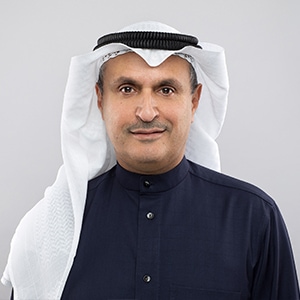
Mr. Al-Sager joined the bank in 1978 and was appointed as GCEO in March 2014. He had previously served as Deputy Group Chief Executive Officer since 2010. He is the Chairman or member of various management committees. Mr. Al-Sager is the Chairman of the board of NBK (International) PLC and serves on the board of directors of Watani Wealth Management (Kingdom of Saudi Arabia). Mr. Al-Sager is a board member of Mastercard. He was the Chairman of National Bank of Kuwait – Egypt until May 2019 and a Board member of Turkish Bank, Watani Holding, NBK Properties (Jersey) Limited; NBK Trustees (Jersey) Limited and NIG Asian Investment Co. Mr. Al Sager enjoys an extensive banking experience for over 42 years at NBK and has played a major role in turning the bank into a leading regional institution with a wide international presence. Mr. Al-Sager holds a Bachelor of Science degree in Business Administration from California State Polytechnic University, United States.
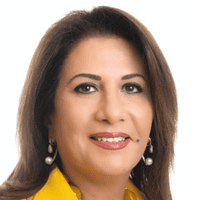
Ms. Jehad Al-Humaidhi has been with the Bank since 1984, holding several leadership positions in Information Technology, Operations and Administration. During 2011, she held the position of General Manager of IT & Operations, rising to Senior General Manager in 2016 before she got promoted to Deputy CEO – Banking Support Group in June 2018. Ms. Al-Humaidhi currently is the Acting CEO of Ahli United Bank, Kuwait, since December 2019. Ms. Al-Humaidhi is also a Vice Chairman of the Shared Electronic Banking Services Company (KNET), Vice-Chairman of The Credit Information Network of Kuwait (Ci-Net), Board member and Vice Chairman of Al Hilal Life B.S.C.(c) & Al Hilal Takaful B.S.C.(c). Ms. Al-Humaidhi holds a Bachelor of Science degree in Mathematics (Major) and Economics (Minor) from Kuwait University.
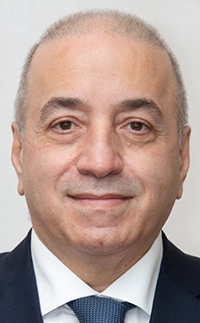
Mr. Georges Richani joined ABK as Group Chief Executive Officer in November 2020 with over 37 years’ banking experience. He joined National Bank of Kuwait (NBK) in 1987 and was the CEO of the Group of Overseas Branches and Subsidiaries since 2012, with operations in 15 countries spread over four continents. At NBK, he was also a member of numerous management committees and served as a board member of several subsidiaries. He has extensive experience in Treasury Management as well as Capital Market Investment Management and International Credit. Mr. Richani graduated from the American University of Beirut with a Bachelor of Science degree (1984) and holds a master’s degree in Business Administration (Finance) with honors from the City University in London (1997).
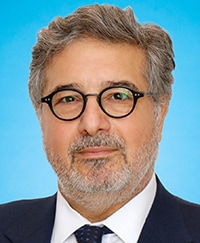
Mr. Ali Khalil is the has been with the Bank since 1984, holding several leadership positions in Information Technology, Operations and Administration. During 2011, she held the position of General Manager of IT & Operations, rising to Senior General Manager in 2016 before she got promoted to Deputy CEO – Banking Support Group in June 2018. Ms. Al-Humaidhi currently is the Acting CEO of Ahli United Bank, Kuwait, since December 2019. Ms. Al-Humaidhi is also a Vice Chairman of the Shared Electronic Banking Services Company (KNET), Vice-Chairman of The Credit Information Network of Kuwait (Ci-Net), Board member and Vice Chairman of Al Hilal Life B.S.C.(c) & Al Hilal Takaful B.S.C.(c). Ms. Al-Humaidhi holds a Bachelor of Science degree in Mathematics (Major) and Economics (Minor) from Kuwait University.

Mr. Al-Rushood received his bachelor’s degree in Mathematics and Computer Science from Western Oregon State College in the U.S in 1987. Mr. Al-Rushood successfully completed a specialized training course on Strategic Leadership at Harvard Business School. Mr. Al-Rushood has been the Acting Group Chief Executive Officer since October 2020 and Group Chief Treasury Officer at Kuwait Finance House since 2015. In addition, Mr. Al-Rushood is a Board member at Kuwait Finance House – Bahrain and a Board member of Aviation Lease & Finance Company (ALAFCO). Mr. Al-Rushood represents Kuwait Finance House at the General Council for Islamic Banks and Financial Institutions (CIBAFI) in Bahrain and serves as a member of the Advisory Board. Mr. Al-Rushood possesses a vast banking experience, spanning more than 29 years. During his professional career, he held numerous prominent leadership roles at Kuwait Finance House including General Manager – Kuwait Treasury from 2013 until 2015. In addition, he was promoted to various leadership positions within the Treasury Department from 2002 until 2013.
Mr. Al-Rushood served as Board member for numerous leading companies including Kuwait Finance House – Malaysia from 2007 until 2013, Liquidity Management House (KFH Investment Company) from 2008 until 2013, Development Enterprises Holding Company (DEH) from 2014 until 2016 and Liquidity Management Centre – Bahrain (LMC) from 2006 until 2016.

Mr. Al-Majed joined Boubyan Bank in August 2009 and has around 40 years of banking experience. He worked previously at the National Bank of Kuwait (NBK) for more than 25 years, where he held leadership positions, including Deputy Chief Executive Officer and General Manager – Consumer Banking Group. Mr. Al-Majed graduated from the University of Alexandria with a bachelor’s degree in accounting and attended various executive management development programs at various universities, including Harvard, Wharton, Stanford and other reputable institutions.
Sponsored By:
